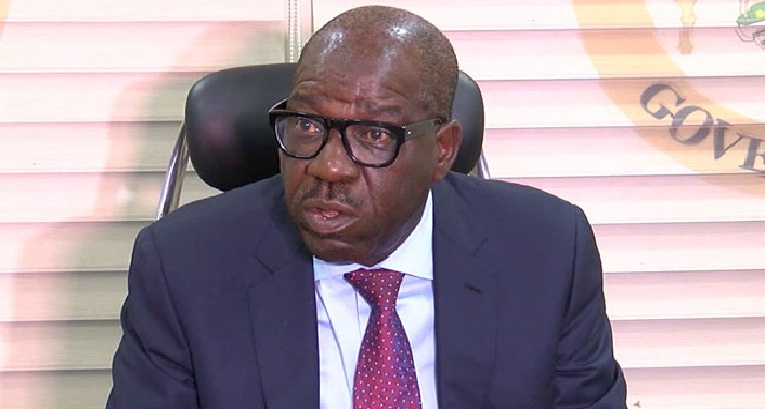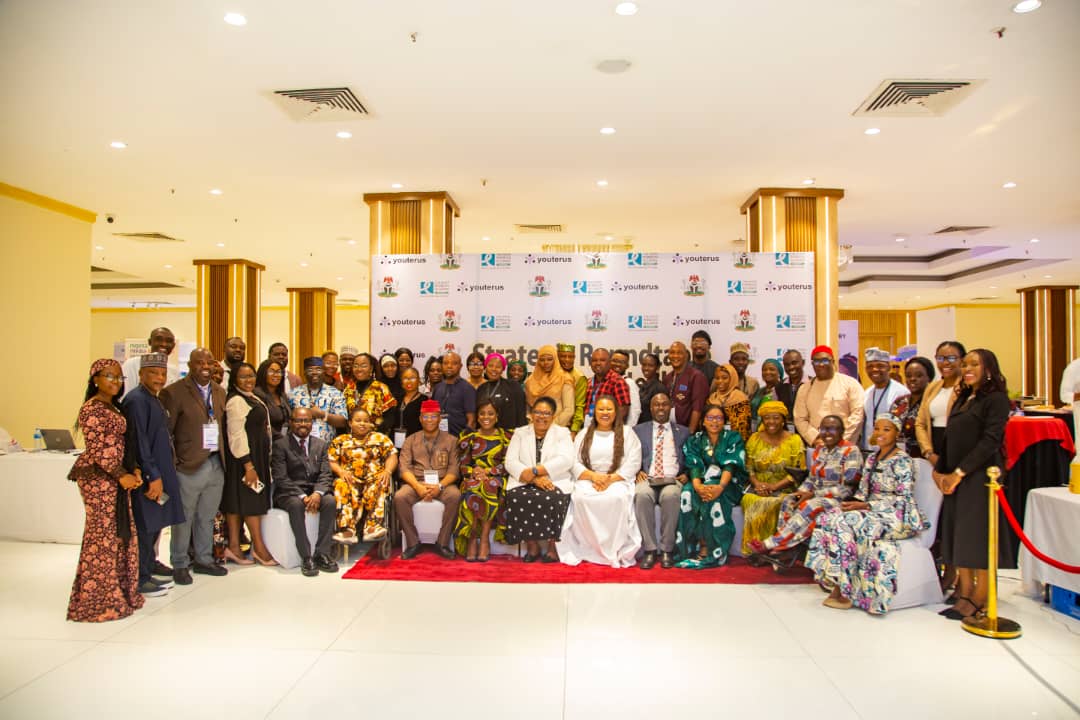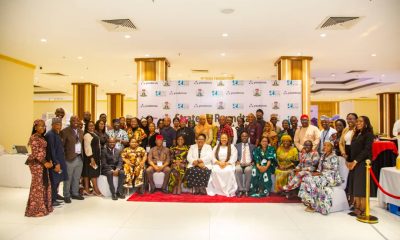NEWS
Fuel subsidy removal: Residents commend Gov. Obaseki’s free transport service

…Residents commend Gov. Obaseki’s free transport service
Residents of Benin metropolis have commended Gov. Godwin Obaseki of Edo, for introducing free transport service to cushion the effect of fuel subsidy removal on the people in the state.
The residents spoke in separate interviews on Wednesday with the News Agency of Nigeria (NAN) in Benin.
Mrs Agnes Ogieator, a trader at Oba of Benin market, said provision of free transport service was one of the best steps the governor had taken to cushion the effect of the hardship orchestrated by the new fuel regime.
According to her, “I used to spend nothing less than N5,000 on transport on daily basis before the flag off of the free transport service.
APC Condemns Obaseki’s Penchant for Demolition of Properties
“That is history now, thanks to Gov. Godwin Obaseki for this initiative to reduce the hardship as I have now channel that N5,000 to other expenses.”
Also speaking, Mr Gabriel Enalogholase, a media practitioner, said he appreciated the new development initiated by the governor.
According to him, it is not everyone that can afford the recent hike in transportation.
“Obaseki has done well as this will create an avenue for some persons to cut cost and save for better days.”
On her part, Mrs Joy Idemudia, a judiciary staff, said because of bad roads in the state and hike in fuel, she had parked her vehicle and keyed into the free transport service provided by the state government.
“I conveniently board the free bus in front of my house at Ekewam road on daily basis straight to king’s square, thereafter join another one on Aduwawa axis to my office without paying a dime.
“In the evening when going home after close of work, I also still join the free bus home, I say thank you to our governor.” she said.
Other beneficiaries also commended the state government for the initiative.
They said Edo people are being relieved of the burden of high cost of transportation as a result of the rise in the cost of petrol occasioned by the fuel subsidy removal by the Federal Government.
NAN reports that the free transport scheme operates between 6am and 7pm daily, covering all ECTS operational routes, both intra-city and inter-city routes, including Auchi – Igarra – Ibillo–Ososo; Uzebba–Ikhin – Otuo, and Abudu-Ubiaja, Abudu-Urhonigbe and Ewohirin to Ewatto.
The intra-city routes are Ramat–Kingsquare; New Benin–Kingsquare; Kingsquare – Ekenwan Road; Kingsquare–Airport Road; Kingsquare–Sapele Road and Kingsquare – Adesuwa, Kingsquare–Ogida; New Benin – Upper Mission; Kingsquare–Ugbowo; Kingsquare–Agbor Road; Kingsquare–Upper Sokponba; New Benin – Ugbowo and New Benin–Aduwawa.
…Residents commend Gov. Obaseki’s free transport service
NEWS
Stakeholders task FG on making Uterine Health a priority

By Laide Akinbpade, Abuja
Stakeholders in the Health sector on Thursday, tasked the Federal Government (FG), to make women uterine health a priority in Nigeria.
This appeal was made at a one-day strategic roundtable on Uterine Health in Nigeria, organized by Federal Ministry of Health and Social Welfare (FMoH&SW) with The White Ribbon Alliance Nigeria and Youterus, in Abuja.
Uterine health is the overall condition and functionality of the uterus encompassing, it’s structural integrity and ability to perform its various roles such as menstruation and carrying a pregnancy.
Uterine health conditions like fibroid, abnormal uterine bleeding, endometriosis, chronic pelvic pain, endometrisis and menopause impact on millions of Nigerian women but are often excluded from national health policies and services.
It has been discovered that fibroid alone accounts for 30% of gynecological consultations at Nigerian tertiary hospitals.
With Uterine health missing from from the key national framework, it is therefore imperative for government to give it a priority.
Dr. Binyerem Ukaire said, women are the bedrock of every nation and are crucial to social economic development of any nation. A woman reproductive health cannot be good without good uterine health.
Dr. Samuel Oyeniyi, Director Reproductive Health, Division FMoH &SW, in his paper presentation titled, ‘Uterine Health and its public health importance in Nigeria’, at the occasion said Uterine Fibroids are extremely common affecting approxemately 12.1% of Nigerian women about 12.8million women nationwide
“Among black women the lifetime risk rises to 80% by age 50. Fibroids are major cause of hospital visits and gynecological surgeries leading to symptoms such as chronic pain, heavy menstrual bleeding, anemia and infertility, most women affected are in their productive age.
“Endometrisis affects upto 48.1% symptomatic Nigerian women in some studies, causing severe pelvic pain, painful menstruations and infertility and diagnosis takes between 7 to 10 years.
“PCO affects 17 -28% of Nigerian women disrupting mentrual cycles and causing hormonal imbalance that can lead to diabetes, obesity and cardiovascular risk and can be undertreated or underdiagnosied.
“While Pelvic Inflammatpry Disease (PID), affects 116 per 100,000 women in West Africa, making it a leading cause of infertility and ecotopic pregnancy in Nigeria.
“Cervical cancer causes more than 8,000 deaths and more than 13,000 new cases yearly in Nigeria . it is prevented by HPV vaccines and about 12 million Nigerian girls have been reached “.
But he said Nigeria’s Non-communicable Disease (NCD), action plan provide an opportunity to include chronic uterine conditions.
He concluded in his presentation by saying, investing $1 in uterine health would yield $9 in benefits.
Dr. Nana Chidi Emmanuel Chairperson, Board of Trustees White Ribbon Alliance Nigeria, in her welcome speech at the roundtable said it is imperative that women health especially uterine health should be prioritized in Nigeria’s health system.
She said currently women are going through a lot psychologically, mentally and other wise, so women health must be a priority to any government all over the world.
She said, “Chronic uterine conditions such as fibroids, abnormal uterine bleeding, and endometrosis affect millions of Nigerian women and girls, causing immeasurable suffering, recurrent medical crises, and economic hardship. Despite this immense burden, women facing these conditions have long confronted silence, stigma, and systemic neglect. Too often, their pain is dismissed, their diagnosis delayed, and their pathways to care—financially and logistically—out of reach.
“Today, together with our committed partners at Youterus Health, we affirm our collective will to change this narrative. We aim to place uterine health at the center of national policies in Nigeria and Africa, financing, and service delivery—moving it from the margins of awareness into the mainstream of Nigeria’s health and development agenda.
“Let us remember that at the heart of these deliberations are the stories and hopes of real women and girls—mothers, daughters, sisters, friends—who endure the daily realities of untreated uterine conditions. Their experiences fuel our urgency and remind us all why this work matters deeply. Our collective efforts here today can catalyze meaningful change that restores health, dignity, and hope.
“WRA Nigeria firmly believes that the leadership of the government working hand in hand civil society and the private sector, is essential to drive durable, just, and people-centered changes. It will take our united voices, innovative models, and steady commitment to dismantle the barriers that have persisted for too long”.
Fatou Wurie, the Chief Executive Officer and Founder of Youterus Health,
in her welcome speech said, uterine health affects millions of Nigerian women and it is under developed women wellbeing and it impact, not only the physical health but social and economy of any nation.
And this uterine health challenges have caused immeasurable suffering in women in Nigeria.
She lamented that most often the pain women feel is ignored and diagnosis delayed.
She said it is imperative for Federal Government to place uterine as a national priority that should be taken up.
“Uterine Health has long being an issue in the world. Uterine Health should be a national issue that should be on a top burner. We are really looking forward to government priotising uterine health in Nigeria”, she said.
Austin Akpakwu, from the office of the Vice President, who represented the Senior Special Assistant to Vice President on Public health, said the office of the Vice President, is keen to support in addressing the uterine health challenges in Nigeria, “It is a laudable project and the office of Vice President is very keen in supporting this project. I have a junior sister that has uterine health issue and that is presently in the hospital so this is very important issue and all hands must be on desk to address it”.

NAFDAC Generates N2.5bn from Illicit Drug Market Raids
By Ubong Ukpong, Abuja
The National Agency for Food and Drug Administration and Control (NAFDAC) on Wednesday, said that it generated N2.5 billion from its recent raids of illicit drug markets in Lagos, Onitsha, and Aba, respectively.
Director-General of the agency, Prof.
Mojisola Adeyeye, who revealed this during a session with the House of Representatives Committee on Food and Drug Administration and Control, said the funds were fines collected from traders found guilty of selling fake or substandard drugs during recent enforcement actions in open markets across the country.While stressing that all funds were paid directly into NAFDAC’s official account, she noted that N996 million was spent on enforcement operations, N159 million was borrowed from a donor grant, and N1.175 billion went to regulatory expenses.
According to her, the agency was left with about N206 million after deductions.
She said the operation, which deployed over 1,300 security personnel, uncovered widespread violations ranging from expired and unapproved drugs to poor storage practices.
Adeyeye said the enforcement drive, which lasted up to four weeks in some locations, uncovered serious threats to public health.
She disclosed that some shop owners were caught distributing banned substances like Tramadol and selling expired or unregistered medicines.
“These charges were not punitive but necessary. The standard fine for violating Good Distribution and Storage Practice (GDSP) is N2 million, but in many cases, we reduced it to N500,000,” she said.
She, however lamented that the agency’s inability to sustain such critical operations is being crippled by severe revenue restrictions imposed by the federal government
While decrying the financial constraints facing the agency, Adeyeye explained that at the end of 2023, NAFDAC had N19 billion in its accounts
The DG however noted that N9 billion was removed before the agency could access it, and only N4.5 billion was eventually released.
Speaking of the agency’s 2024 raid in Kano, she described the operation in the Northwestern state as a monumental and court-mandated intervention that differed significantly from the raids conducted in Lagos, Onitsha, and Aba.
She said the Kano raid was anchored on a judgment delivered on February 16, 2024, by the Federal High Court which ordered the relocation of open drug market traders to the newly constructed Coordinated Wholesale Centre (CWC), known as the Kanawa Pharmaceutical Centre.
Adeyeye clarified that no administrative charges or fines were collected during the Kano enforcement, due to the urgent and court-directed nature of the operation.
The DG however noted that post-marketing surveillance was carried out after relocation.
She added: “These are the lives we are trying to save. We had no funds at the time our accounts had just been shut down and reopened with zero balance at the start of January 2024. Yet, we had to carry out the court judgment and move over 1,300 shops into the regulated centre.”
Adeyeye stated that Kano was the only state that had built its CWC as mandated by a presidential directive, long before her tenure began.
Responding to lawmakers’ concerns that Kano traders were treated more leniently compared to the operations in the southern part of the country, she said the agency followed due process, guided by the urgency of the court judgment and prevailing security risks.
Clarifying the financial situation of the agency, Director of Finance and Accounts, NAFDAC, Adeniji Nma, said the Office of the Accountant-General of the Federation (OAGF) had unilaterally classified NAFDAC as a revenue-generating agency and begun sweeping up to 50 per cent of all revenue inflows into the federal treasury.
Because of it, we find it difficult to do most of our operations.”
After the presentation, a member of the committee, Hon. Emeka Idu, requested a detailed breakdown of the revenue generated from each location where fines were collected during the enforcement operations.
The NAFDAC team was unable to provide the breakdown at the hearing.
Chairman of the committee, Regina Akume, noted that the agency’s presentation was incomplete.
The committee, consequently, directed the agency to return with a comprehensive, location-by-location account of the N2.5 billion generated from the raids.
| ReplyReply allForwardAdd reaction |
NEWS
Adamawa Police Boost Capacity to Handle Gender-Based Violence Cases

From Yagana Ali, Yola
The Adamawa State Police Command, in collaboration with the United Nations Population Fund (UNFPA), has begun a second-phase step-down training on Gender-Based Violence (GBV) for its gender desk officers.
The training, held at the command’s conference hall in Yola, brought together 80 personnel, divided into batches A and B.
The Commissioner of Police, Morris Dankwabo, represented by Deputy Commissioner of Police John Sandere, urged the personnel to utilize the training to change the narrative of public perception on police handling of GBV cases.
Sandere emphasized the importance of updating their knowledge on GBV to effectively address the scourge in the state.
Resource person Balkisu Ahmed called on the general public and the police to work together to bring an end to GBV cases in the state.
Ahmed noted that every individual, organization and government is working hard to ensure perpetrators are brought to book and survivors receive justice.
The Police Public Relations Officer, Sulaiman Yahaya Ngroje, assured that the command is committed to ensuring that personnel knowledge is up-to-date on handling GBV cases and that justice is done to survivors.
Inspector Ijidugal Mperiju, Gender Desk Officer, Girei Division, commended the Adamawa Police Command for stepping down the training, saying it will enrich their knowledge on handling GBV cases and enable them to work diligently.
The training is a significant step towards enhancing the capacity of Adamawa State Police personnel to handle GBV cases effectively. The collaboration with UNFPA demonstrates the command’s commitment to protecting the rights of citizens, particularly vulnerable groups.
















